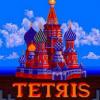... it`s only that I seek about Idle and feel disappointed because in wikipedia is said to not support GUIs ...
What does "a GUI" mean to you?
An IDE is basically an fancy editor, with some tricks. It knows how to run a Python file for example, perhaps it can also display errors reported by Python, it may be able to rename variables, etc, but basically it's a way to enter your program.
Wikipedia claims "lack of ..general user interface design" https://en.wikipedia.org/wiki/IDLE_(Python)
Note that "user interface design" there means a graphical program with windows, pop-ups, drop-downs, and menus, etc.
The claim means that you can program a Gui using Idle (an IDE is just a fancy way to write Python code), but Idle does not help you with extra tools. Thus if you want to make such a program, with lots of interactive fill-in forms, and reports, and popups and other dialogues, Idle is likely not the right tool for you.
This is however not a problem. While commercial software normally gives you 1 solution to a problem, open source software (such as Python and Lua), typically give you between 3 and several dozen solutions. Editors are definitely in the latter category, and "a few dozen" is probably an underestimation.
Python itself gives you Idle (if only to make sure you do have at least one way to edit a Python program), but nobody prevents you from finding and using a better IDE ("better" here means better to you). python.org likely has a list, and even Wikipedia provides a list (and if you look for 5 seconds at the Internet, you'll find even more lists).
Personally, I never even considered using Idle, as I like my gvim editor too much (but you may not, it has a very steep learning curve).
Just have a look at a few, and pick one that you like (and if you later find out it's not any good, ditch it, and find another that's better.
Note that programming PyGame will work fine even in Idle, as pygame only provides a rectangular area for you to draw on (see also below for a more detailed discussion), it doesn't have dropdowns, popups etc (unless you make them yourself).
Sadly, I dont understand the paragraph: "don't know Love2d, but for PyGame, there isn't much framework. ..generic framework can't do your logic"
When you use pygame, you get a program that displays a window. You get notifications that the user clicked the "close program" button, or moved the mouse, or clicked a mouse button, or pressed a key. The window is black, unless you paint rectangles, lines, or text in it. You can also display image files.
The decision what to draw, and where, or how to react on a mouse click or a pressed key, is your game logic. For example, I have a pygame program running where I track time, so it has code that catches mouse clicks, and then changes some time variables. In your code, a mouse click may mean to go left, or to remove the thing you clicked, so you'll have different code (different logic) than my pygame program.
All this logic is just normal Python code. Using a framework does not mean you won't write normal code. The framework just gives you some additional functions so you don't have to write them.
but Im not saying who is right or not, only that other people consider framework this (probably beginner like me in this case)
Did you read my reply on open source providing you with a lot of solutions for any problem that you may have?
Guess what, that also applies to frameworks.
There are a lot of solutions, and people can only point them out for you. You'll have to decide yourself. I can't tell you much, as I have no experience other than with PyGame. You may not consider that a good framework, and that's fine. Your proiblem is likely different from mine.
Just have a look at some frameworks, download a few, and try them. If you like them, keep them for further exploration. If you hate them, throw them away and find better ones.






